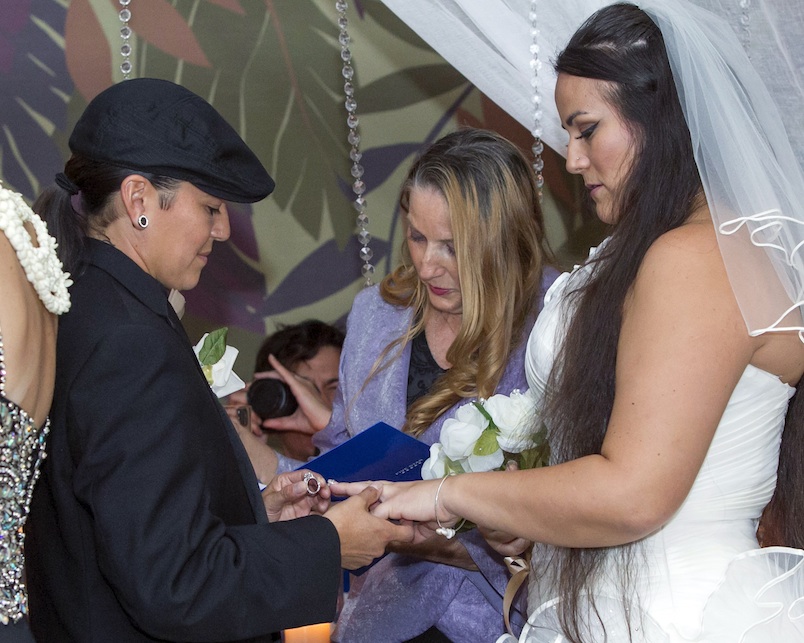Over the last two to three years, everyone has come to see that the tide has turned in favor of marriage equality: It’s not a matter of if, but when, same sex marriage rights become the law of the land nationwide. Last month I noted that court cases in Utah and Ohio signaled that that ‘when’ may be coming much sooner than we’ve imagined, with the Supreme Court likely to be pressed to accept and act on the logic of the decision in US v Windsor and rule that states cannot discriminate against same sex couples in marriage rights.
Now we have another data point: Even in Utah, arguably the most conservative state in the union, the public is evenly divided on whether lesbians and gays should be allowed to marry.
We did have the federal court decision last month in Utah. But that had nothing to do with public opinion, at least in Utah itself. But a new poll by Survey USA, sponsored by The Salt Lake Tribune shows that 48% support and 48% oppose same sex marriage rights.
So even in Utah, same sex marriage would have a shot at winning in a popular vote.

Courtesy: The Salt Lake Tribune
As you can see, the numbers breakdown heavily along religious and partisan lines. 68% of Republicans oppose and 64% of Mormons. Democrats and non-Mormons overwhelmingly support.
It’s even more clear now that the battle for the principle of marriage equality is genuinely over. Not just in blue states, which we knew, but even in many of the most conservative states in the country. (Nate Silver argued last year that Mississippi and Alabama are likely to be the final same sex marriage hold outs.) What we have now isn’t so much a battle as a vast mopping up operation, a race between legislatures and the courts to catch up with galloping public opinion.
Since last month we know have this most recent federal court decision in Oklahoma, another state with some claim to being the most conservative state in the country, tossing out the state’s ban on same sex marriage. To play the devil’s advocate, we can note that the judges in the Utah and Oklahoma cases were Clinton and Obama appointees. (The Judge with the narrower ruling in Ohio is another Obama appointee.) We’ve yet to see a judge appointee by Republican president make a similar ruling.
But judges don’t generally like to get overruled or get too far out in front of higher court rulings. One judge going off on his or her own is one thing. Three making such a finding in short order suggests that Justice Scalia was right in stating what most others recognized: that the Court’s decision in Windsor leaves virtually no constitutional ground for states to reject same sex marriage.
I’ll stick to my earlier prediction: I think this whole thing will be over quicker than we realize.






